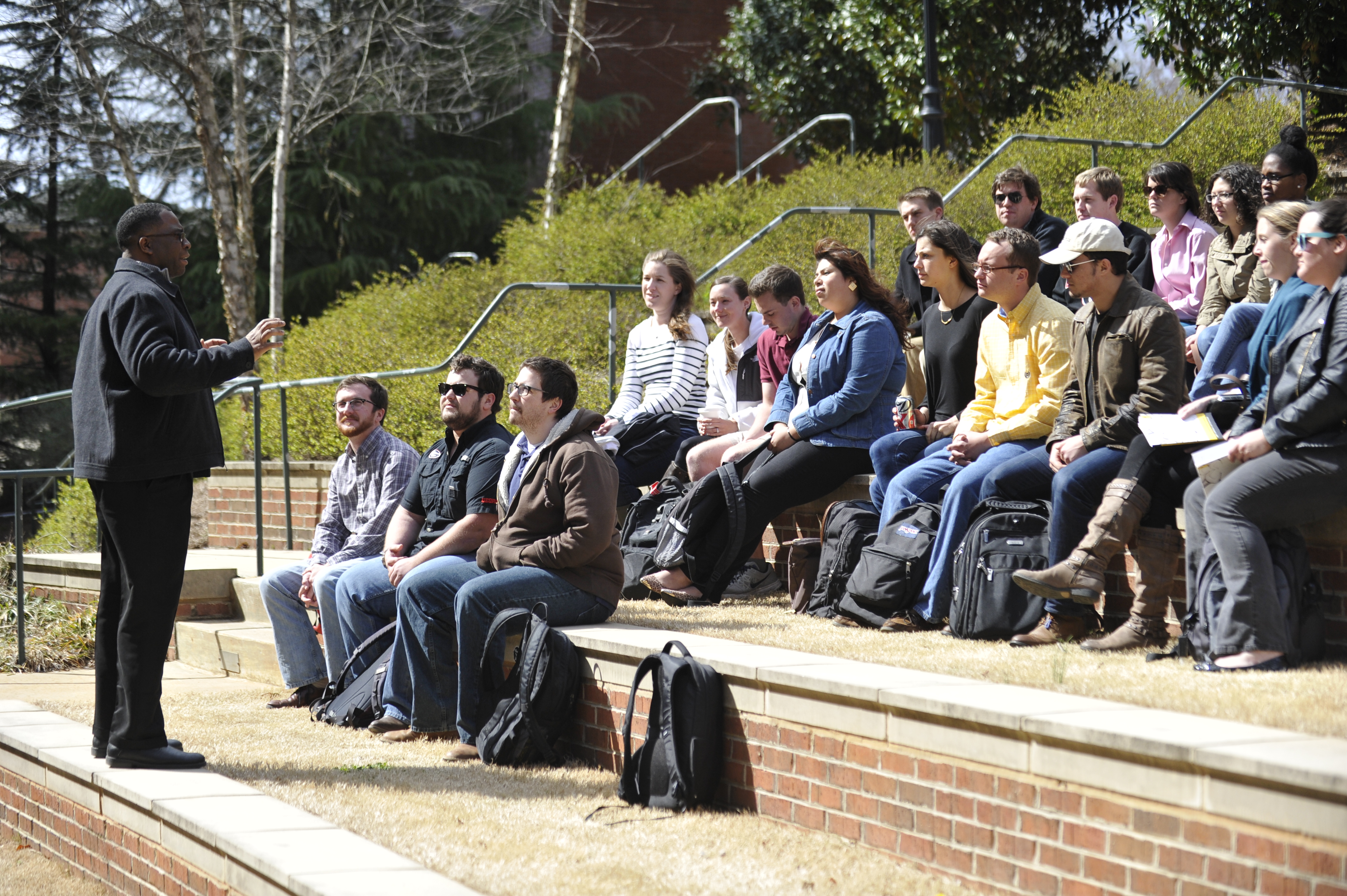By Marlin Collier
Dr. Brian Williams will tell you he’s been at UGA for a long time. “I’m a native Georgian, and I’m also an alum of UGA. I’m a public institution type of guy. I like this university not only because of its mission, but also because of the growth it’s made over the years. I was a freshman fall of 1985 so I’ve seen a lot of things happen over the past 32 years…It’s a great place. Athens is a great town, close to Atlanta. It’s a little heaven on earth almost.”
Williams is a triple (!) Dawg, receiving his Bachelor’s, Master’s, and PhD here at UGA. His research focuses primarily on demographic diversity, local law enforcement, and public governance. He is particularly interested in how the perceptions and experience of individuals relate to the relationship between communities and law enforcement. Williams’ expertise has allowed him to serve as a consultant to several police departments and public safety agencies.
Williams became interested in local law enforcement and diversity around the time community policing was blossoming. “I saw certain segments of the population didn’t want to connect with local law enforcement. One of the reasons was for some historical issues, but I don’t think that was commonly understood or appreciated beyond that segment. So what I wanted to do was fill in those gaps, create bridges that allow the police and communities to better appreciate each other and each other’s personal experiences and how those experiences might shape their perceptions of the other.”
Williams teaches public administration classes, including organizational theory, urban policy, and ethics in public administration. He says his experience as a student has shaped his style as a professor. “I was guided and molded by some excellent professors I had…What they were able to do is shape me in a way of not only understanding and appreciating the discipline of political science and the field of public administration, but also shape and mold me to mature as a person and scholar. It’s been a journey I’ve enjoyed, and I’ve really benefitted from the guidance and direction of some really great folks, not only within our program but across campus too.”
Williams choses to study a difficult, qualitative subject. Tensions are undeniably high between law enforcement and communities, especially minority communities. From Ferguson to the police shooting in Dallas and everything in between, a spectrum of emotion is palpable. But Williams is optimistic for positive change. He says, “We all come from different life experiences. Sometimes I don’t think we can fully appreciate the other…Right now it’s really important for us to make sure our policies are good policies and not just reactions to social constructions. If not, it will impact all of us, one way or another. Now is a polarized point in time, and we have to find ways to appreciate and really understand the perspectives of others and begin the process of having open and honest dialogue to move forward in a way that forms a more perfect union.”






